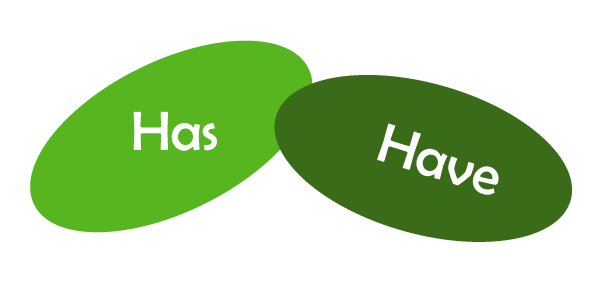Difference between Has and HaveThe words "has" and "have" are both forms of the verb "to have." However, they are used differently in a sentence, and understanding the difference between the two is important for effective communication in English. In this article, we will explore the meaning of "has" and "have," their usage, and some examples of their usage in different contexts. 
Meaning of "Has" and "Have""Has" and "have" are both forms of the verb "to have." The word "have" is used to indicate possession, while "has" is used to indicate the present tense of possession. The two words are used differently in sentences, depending on the subject of the sentence. Usage of "Has""Has" is used in sentences with third-person singular subjects, such as "he," "she," "it," or a singular noun. For example, "He has a car," "She has a job," "It has a tail," and "The cat has a mouse." "Has" is also used to form the present perfect tense in sentences, which refers to an action that started in the past and continues to the present. For example, "She has lived in this city for five years," "He has worked in this company since 2010," and "I have studied English for three years." In addition, "has" is used to indicate possession in past tense sentences, such as "He has had the car for three years," "She has had the job for six months," and "The cat has had the mouse for dinner." Usage of "Have""Have" is used in sentences with first-person singular subjects, such as "I," "we," "us," "you," or plural nouns. For example, "I have a book," "We have a party tonight," "You have a meeting tomorrow," and "They have a new house." "Have" is also used to form the present perfect tense in sentences, which refers to an action that started in the past and continues to the present. For example, "I have studied English for three years," "We have traveled to many countries," and "You have written a book." In addition, "have" is used to indicate possession in past tense sentences, such as "I had a car when I was in college," "We had a great time on our vacation," and "You had a good idea." Examples of "Has" and "Have" in Different ContextsTo better understand the difference between "has" and "have," let's look at some examples of their usage in different contexts: 1. Possession"Has" is used to indicate possession with third-person singular subjects, while "have" is used with first-person singular subjects and plural nouns. Example:
2. Present Perfect Tense"Has" and "have" are both used to form the present perfect tense, which refers to an action that started in the past and continues to the present. Example:
3. Past Tense"Has" and "have" are used to indicate possession in past tense sentences. Example:
4. QuestionsWhen forming questions, "has" is used with third-person singular subjects, while "have" is used with first-person singular subjects and plural nouns. Example:
5. Contractions"Has" and "have" can be contracted in informal writing and speaking, and their contractions are different. Example:
6. Auxiliary Verbs"Has" and "have" are also used as auxiliary verbs in sentences, along with the past participle of a main verb, to form different tenses. Example:
ConclusionIn conclusion, "has" and "have" are both forms of the verb "to have" and are used to indicate possession, form the present perfect tense, and serve as auxiliary verbs to form different tenses. However, "has" is used with third-person singular subjects, while "have" is used with first-person singular subjects and plural nouns. Understanding the difference between these two words is important for effective communication in English.
Next TopicDifference between
|
 For Videos Join Our Youtube Channel: Join Now
For Videos Join Our Youtube Channel: Join Now
Feedback
- Send your Feedback to [email protected]
Help Others, Please Share










